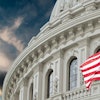
The American College of Radiology (ACR) said that it won't be able to support a Congressional plan to address "surprise billing" unless improvements are made to the legislation.
Surprise medical bills are caused by limited insurance networks, and patients should only be responsible for in-network cost sharing when they unknowingly receive out-of-network care at in-network facilities, the ACR said. The college said that new legislation to protect patients from surprise medical bills must also guard against unintended impacts on access to care.
However, the plan, which was unveiled on Sunday by Senator Lamar Alexander (R-TN), Representative Frank Pallone (D-NJ), and Representative Greg Walden (R-OR), includes provisions enabling the government to set payment rates. That would allow insurers to shift more costs to patients via higher deductibles and other cost sharing, according to the ACR.
Furthermore, these government price controls would set arbitrary and artificial price points that benefit insurers, while restricting the number of providers who can afford to offer such services, the ACR said. In addition, the organization noted that there isn't any assurance in the legislation that any savings to insurers from this bill would be passed on to patients.
The plan also doesn't include an adequate provision for resolving disputes, according to the ACR. The proposed threshold of $750 would exclude many of the most common medical services and procedures, forcing medical providers to accept a median in-network payment that would likely be driven progressively lower by insurers, according to the college. This payment level could reach the point where providers might not be able to continue offering those services, the ACR said.
The ACR agrees that patients should be protected from surprise medical bills resulting from networks with inadequate coverage, according to ACR CEO Dr. William Thorwarth.
"That is not at question," he said in a statement. "However, placing unfettered power in these occurrences in the hands of insurers would impact access to care that neither patients, providers, or the government will be happy with."


















